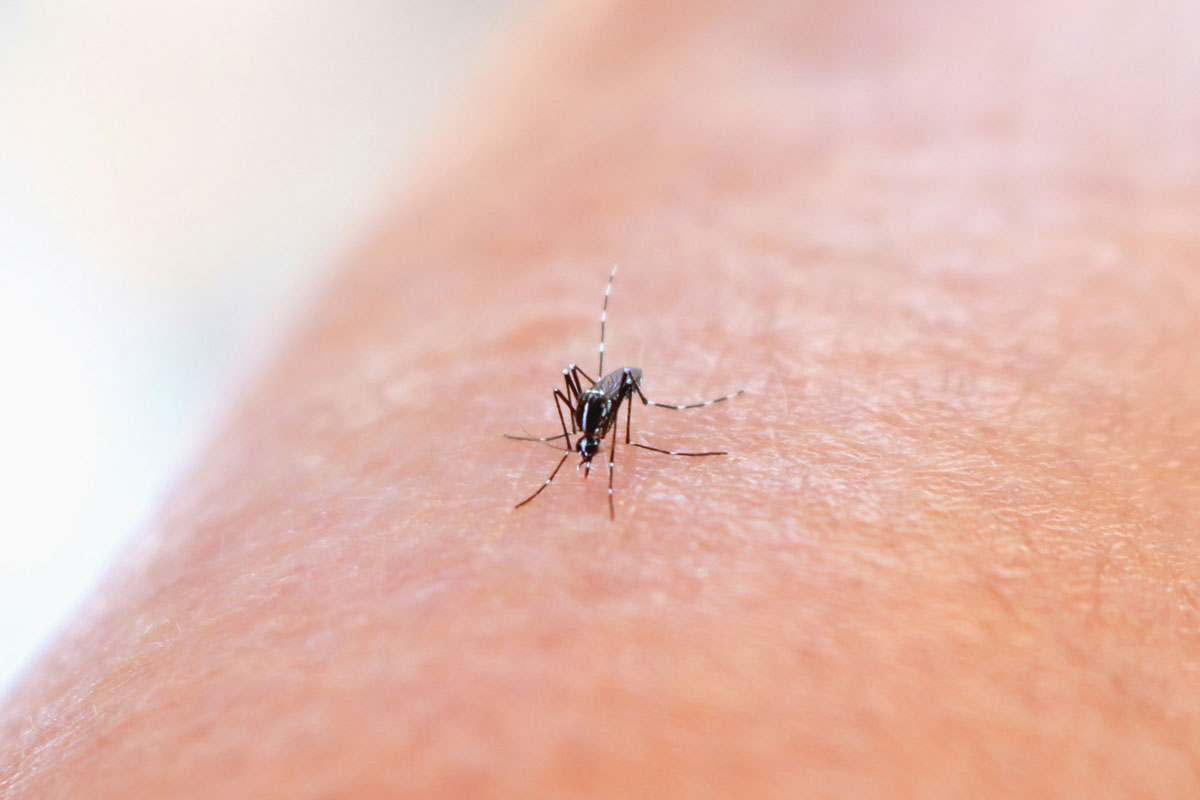Dengue infection associated with increased risk of depression
An analysis of Taiwanese medical records supports the idea that dengue infection could have longer-term consequences for people’s health.
- 4 July 2024
- 3 min read
- by Linda Geddes

Dengue infection is associated with both a short- and longer-term increase in the risk of depression, new research suggests.
The study, which drew on medical records from nearly 50,000 people who had been diagnosed with dengue fever in Taiwan, adds to mounting evidence that the dengue virus can cause lingering illness in some of those who are infected with it.
Dengue is transmitted through the bites of infected female mosquitoes and causes a flu-like illness, which can occasionally be fatal. However, many people have only mild symptoms, or no symptoms at all.
Earlier research has suggested that certain individuals may experience ongoing headaches, skin rashes and chronic fatigue well beyond the acute phase of the illness. “Importantly, these prolonged symptoms have the potential to contribute to the development of long-term depressive conditions post-infection,” said Dr Hsin-I Shih at National Cheng Kung University in Tainan, Taiwan, and colleagues, who led the new study.
But while some previous studies have linked dengue to depression and anxiety in the short term, its longer-term effects on mental health were less clear.
To investigate, Shih and colleagues analysed the medical records of 45,334 dengue patients diagnosed between 2002 and 2015, plus records for a further 226,670 patients who weren’t infected, to see if dengue patients were any more likely to develop anxiety, depressive disorders or sleep disorders in the months or years after infection.
The research, which was published in PLOS Neglected Tropical Diseases, found that dengue patients had a greater likelihood of developing a depressive disorder across all time periods, including less than 3 months, 3 to 12 months, and more than 12 months after their infection. The median follow-up time for all patients in the study was 3.3 years.
Have you read?
The risk of sleep disorders was also elevated in the 3 to 12 months post-infection, but there was no increased risk of anxiety at any time for most dengue patients.
However, when the team analysed records for the subgroup of 15,542 (34%) of dengue patients whose infection was severe enough for them to be hospitalised, they found an increased risk of anxiety disorders within the first 3 months of infection, and an elevated risk of sleep disorders in the first 12 months. They also had an increased risk of depression across all time periods.
Although these findings highlight the potential impact of dengue infection on mental health, further research is needed to understand the mechanisms underpinning the association, the researchers said.
While it is possible that other ongoing symptoms, or the trauma of being hospitalised, could be contributing to people’s depression, another possibility is that the virus is directly affecting the brain. “Parallels can be drawn with the West Nile virus – another member of the Flavivirus family,” the researchers said.
“Post-infection depression following West Nile virus has been documented in the US, with some patients reporting depressive symptoms even a year after contracting the virus. Given that dengue also falls under the Flavivirus category, it is plausible to surmise that patients infected with dengue might develop psychiatric disorders post-infection.”







